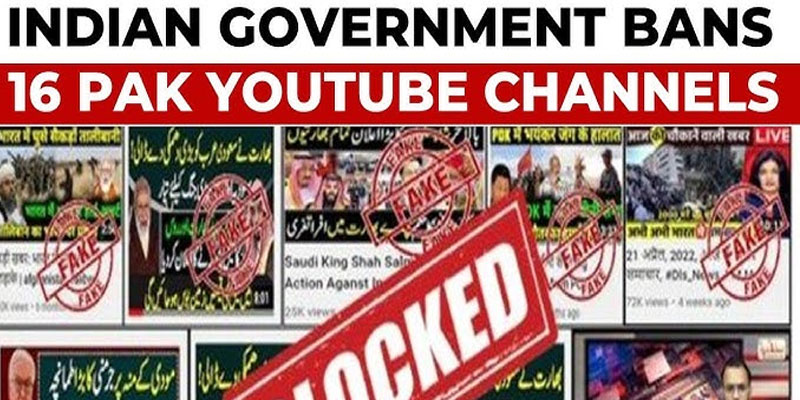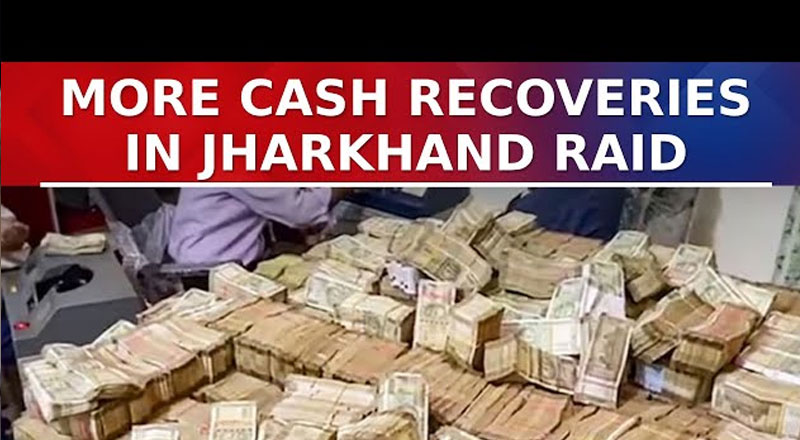Crackdown on Digital Platforms: Dawn, ARY, Geo Among Those Banned
In a sweeping move to counter misinformation and inflammatory content, India has banned 16 Pakistani YouTube channels, collectively boasting over 63 million subscribers. The ban, enacted on the Union Home Ministry’s recommendation, follows the tragic terrorist attack in Pahalgam, Kashmir, which left 26 people—25 tourists and a local—dead.
Among the major channels banned are prominent news outlets such as Dawn, Samaa TV, ARY News, Bol News, Raftar, Geo News, and Suno News. YouTube channels operated by Pakistani journalists like Irshad Bhatti, Asma Shirazi, Umar Cheema, and Muneeb Farooq have also been pulled down. Other platforms including The Pakistan Reference, Samaa Sports, Uzair Cricket, and Razi Naama were also targeted.
Users attempting to access these channels in India are met with a message citing “national security or public order” concerns, referencing Google’s Transparency Report.
The Pahalgam Tragedy: A Dark Day in Kashmir
The immediate catalyst for this crackdown was the Pahalgam terror attack in Baisaran Valley, where gunmen brutally opened fire on innocent tourists. The attack not only left 26 dead and several injured but also deeply wounded the nation’s collective spirit.
Prime Minister Narendra Modi condemned the assault, describing it as an attack on India’s soul, vowing that the perpetrators and their enablers would face unimaginable consequences. “The time has come to raze whatever is left of the terror haven,” he declared, expressing the nation’s fury and resilience.
India’s Stern Response: Beyond Social Media Bans
In addition to banning the YouTube channels, New Delhi has taken several strong diplomatic and security measures:
- Suspension of the Indus Water Treaty: A key water-sharing agreement between India and Pakistan has been suspended, signaling serious diplomatic escalation.
- Visa Services Halted: India has stopped issuing visas to Pakistani nationals until further notice.
- Monitoring Foreign Media: The Indian government issued a warning to the BBC after it ran a controversial headline suggesting that Indian forces were responsible for the attack. The Ministry of External Affairs conveyed India’s “strong sentiments” to BBC’s India head Jackie Martin and sent a formal letter objecting to BBC’s characterization of terrorists as “militants.”
Pakistan’s Counteraction: Heightening Tensions
In response to India’s steps, Islamabad has threatened to suspend all bilateral agreements with India, including the historic Simla Agreement, which has been the cornerstone of peacekeeping efforts post the 1971 war.
Simultaneously, Pakistani troops have reportedly engaged in unprovoked firing across the Line of Control (LoC), breaching the ceasefire agreement. The Indian Army has retaliated firmly, signaling no tolerance for further provocations.
Meanwhile, investigations within India have revealed a concerning security lapse: a Lucknow-based Aadhaar Seva Kendra (ASK) has come under scrutiny for allegedly creating fake IDs for Pakistani nationals whose visas were revoked following the terror attack.
Analysis: A Crossroads for Indo-Pak Relations
The Pahalgam attack and subsequent developments underscore a pivotal shift. India’s strategy post-attack reflects a more integrated approach, using diplomatic, digital, military, and media channels to send a clear message: terrorism and its sympathizers will face multi-domain consequences.
Banning major Pakistani media outlets represents a new front in combating hybrid warfare, where misinformation is weaponized almost as dangerous as guns. It also signals India’s willingness to hold foreign media accountable for narratives that could potentially misrepresent ground realities or sow confusion.
On the other hand, Pakistan’s reaction appears more reactionary than strategic, risking further isolation on the international stage if it escalates retaliations without broader global support.
A Defining Moment for National Resolve
The tragedy at Pahalgam has transformed sorrow into a powerful surge of national resolve. India’s swift and comprehensive actions reflect a country unwilling to be cornered by terror tactics or narrative wars.
As both nations navigate the fallout, this moment serves as a stark reminder: when a nation’s soul is attacked, its collective spirit rises not just in grief—but in unbreakable determination. In the end, resilience and unity may prove to be India’s greatest answer to terror.
(With inputs from agencies)





